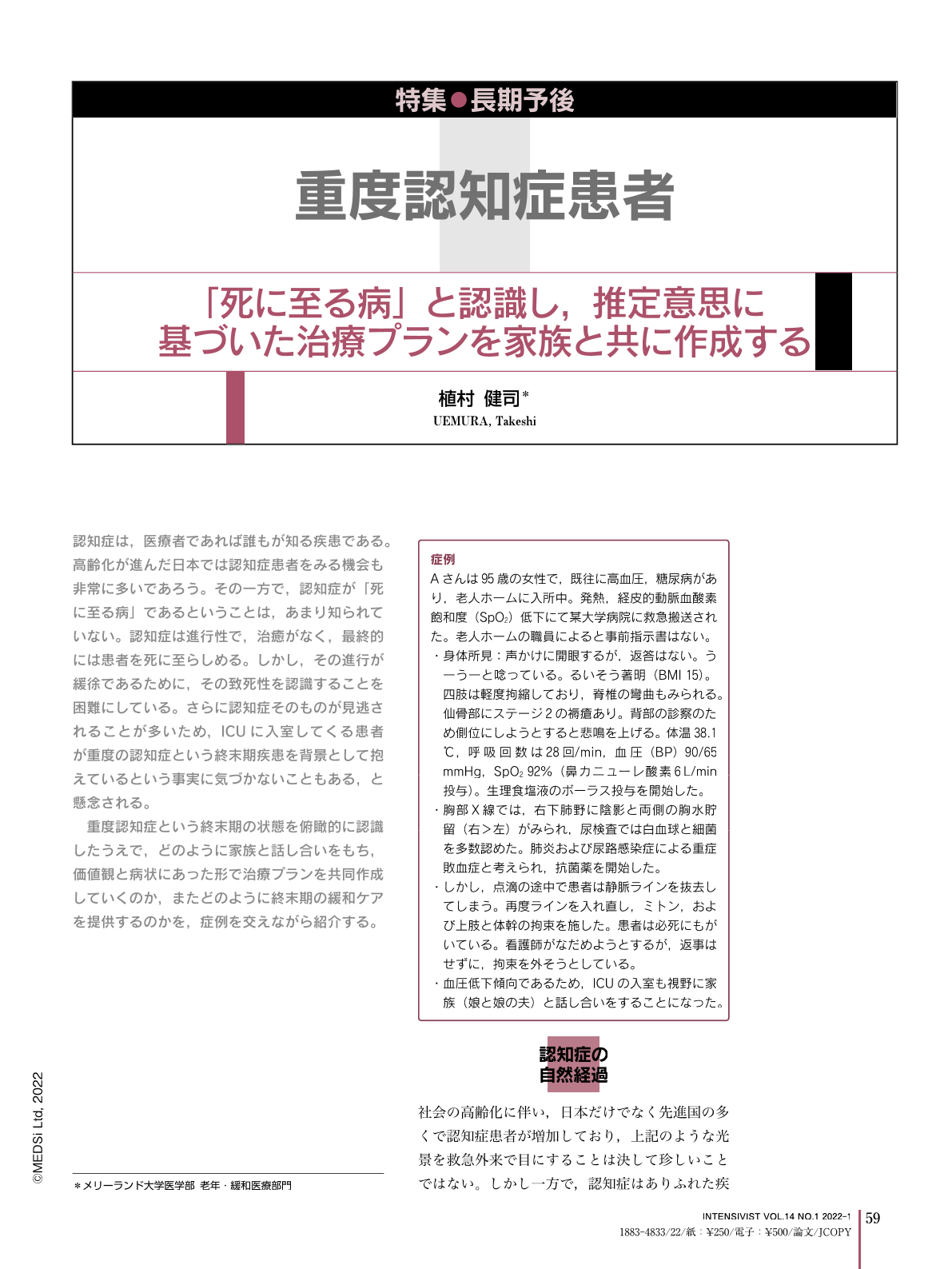Japanese
English
- 有料閲覧
- Abstract 文献概要
- 1ページ目 Look Inside
- 参考文献 Reference
認知症は,医療者であれば誰もが知る疾患である。高齢化が進んだ日本では認知症患者をみる機会も非常に多いであろう。その一方で,認知症が「死に至る病」であるということは,あまり知られていない。認知症は進行性で,治癒がなく,最終的には患者を死に至らしめる。しかし,その進行が緩徐であるために,その致死性を認識することを困難にしている。さらに認知症そのものが見逃されることが多いため,ICUに入室してくる患者が重度の認知症という終末期疾患を背景として抱えているという事実に気づかないこともある,と懸念される。
重度認知症という終末期の状態を俯瞰的に認識したうえで,どのように家族と話し合いをもち,価値観と病状にあった形で治療プランを共同作成していくのか,またどのように終末期の緩和ケアを提供するのかを,症例を交えながら紹介する。
Dementia is a common disease, and yet it is not widely known as fatal, especially in Japan. In fact, although dementia is ranked as the 6th leading cause of death in the US, dementia is not on the top ten list in Japan as a cause of death, which may reflect serious under-recognition of the mortality associated with a diagnosis of dementia. Instead, in Japan, failure to thrive and pneumonia are the 4th and 5th leading cause of death respectively, a substantial proportion of which could in fact be related to dementia. The slow progression of the disease likely makes it difficult to link dementia to a patient's death. This article reviews the natural trajectory of dementia and provides guidance on how to recognize advanced dementia, which is a terminal condition, in the ICU setting. This also provides guidance on how to conduct goals of care conversations to generate goal-concordant care plans by incorporating recognition of the mortality associated with dementia and the patient's perceived values voiced by the surrogate. Lastly, this shows what it would look like to provide comfort care to patients with advanced dementia in the last days of their lives.

Copyright © 2022, MEDICAL SCIENCES INTERNATIONAL, LTD. All rights reserved.


